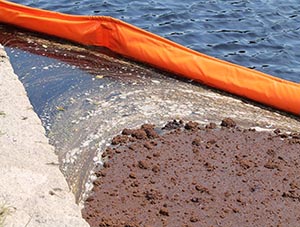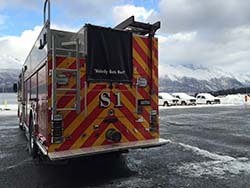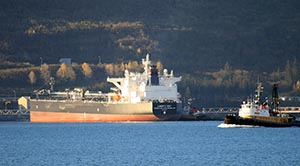By Jeremy Robida
Council Project Manager
 A group of oil spill preparedness planners in Prince William Sound are working together to develop an improved method of training for oil spills. The council has been working for many years to find a suitable oil “surrogate” for spill response training. Surrogates are floating substances such as wood chips, peat moss, or other materials that would mimic an oil slick and have similar interactions with currents, tides, and winds, without harming the environment. A surrogate would provide a target for responders during training and exercises; something which physically interacts with boom and equipment and acts as a visual aid to help responders increase proficiency with gear and tactics.
A group of oil spill preparedness planners in Prince William Sound are working together to develop an improved method of training for oil spills. The council has been working for many years to find a suitable oil “surrogate” for spill response training. Surrogates are floating substances such as wood chips, peat moss, or other materials that would mimic an oil slick and have similar interactions with currents, tides, and winds, without harming the environment. A surrogate would provide a target for responders during training and exercises; something which physically interacts with boom and equipment and acts as a visual aid to help responders increase proficiency with gear and tactics.
Federal policies do not provide guidance for surrogates. Instead, local solutions are encouraged which can be tailored to fit each region’s particular environmental concerns.


